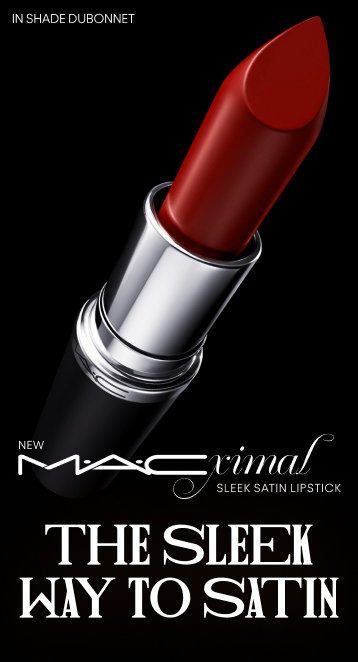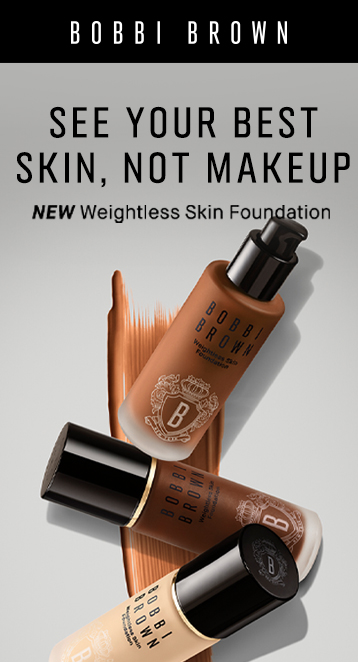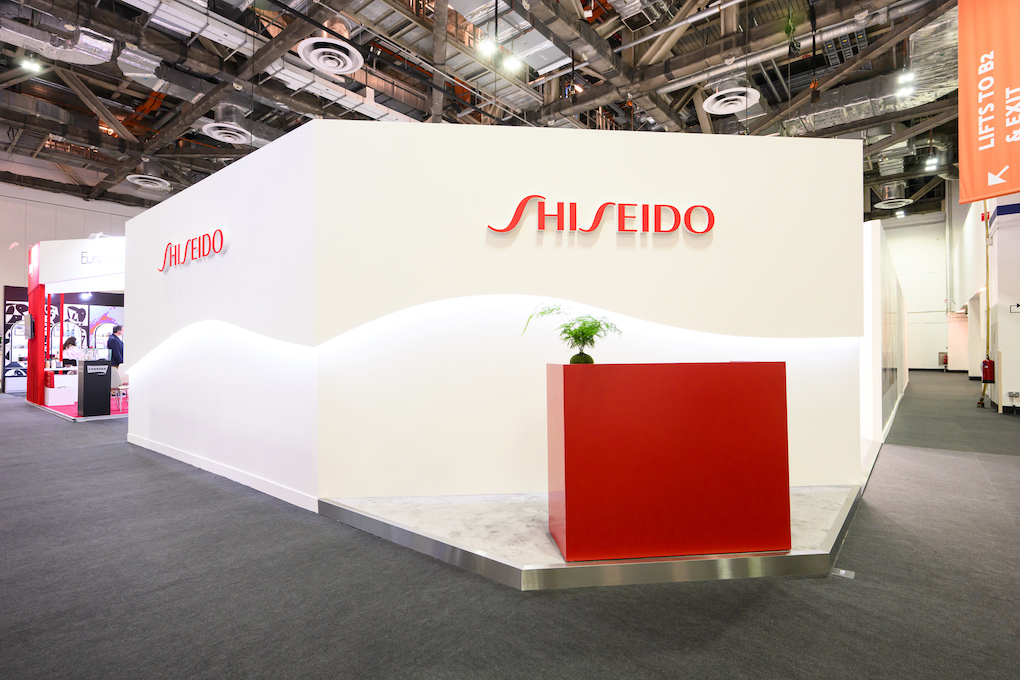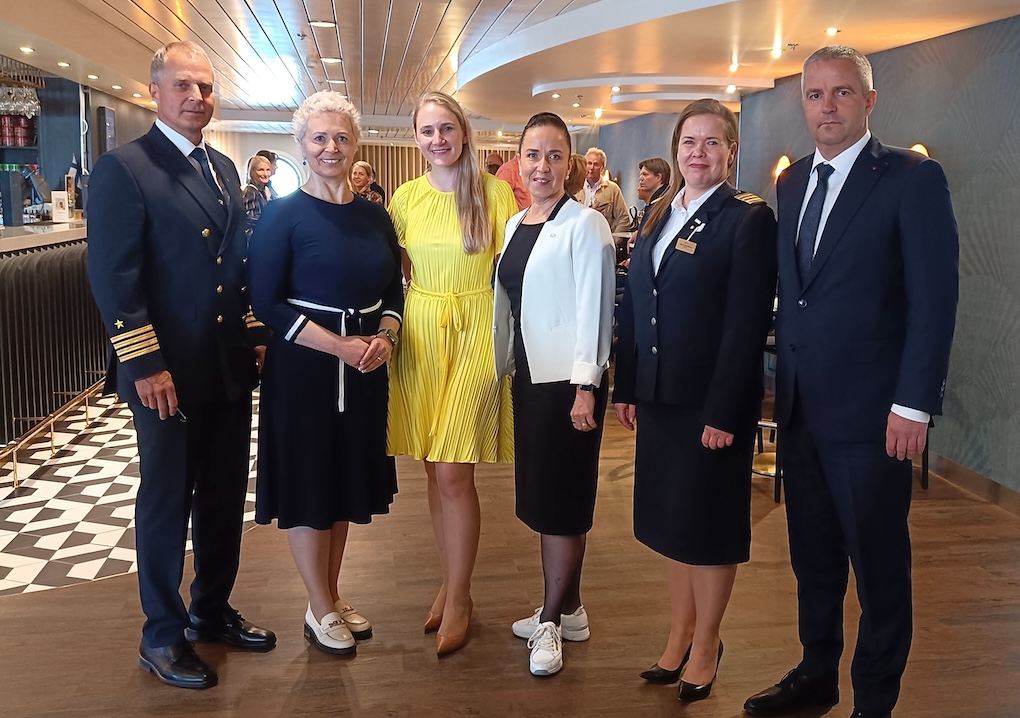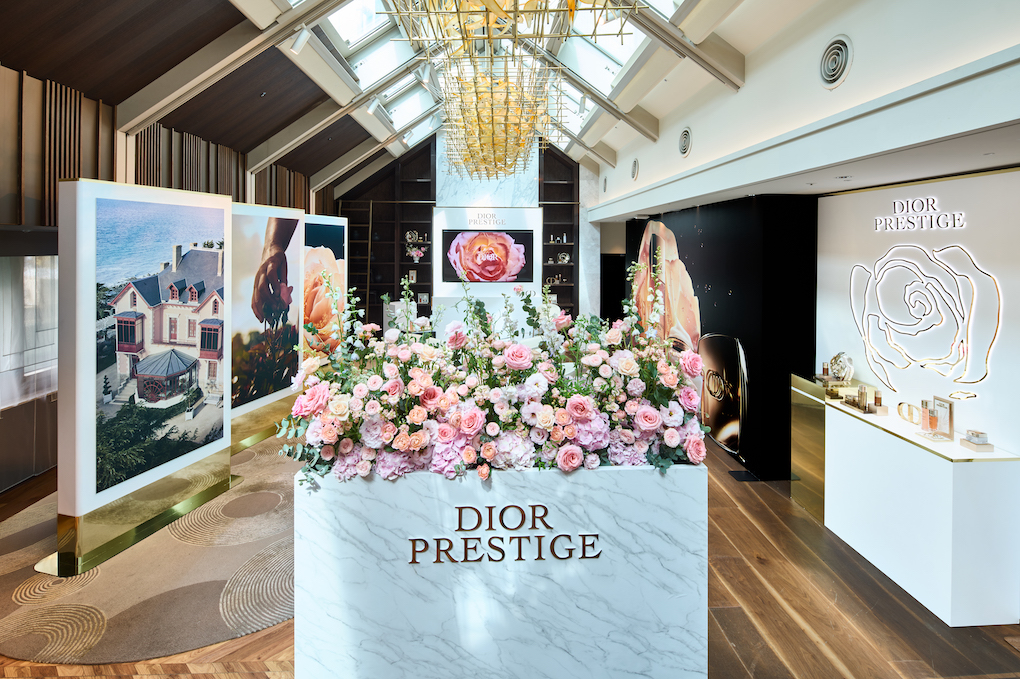INTERNATIONAL. As expected, Coty has signed an agreement to merge The Procter & Gamble Company’s (P&G) fine fragrance, colour cosmetics and hair colour businesses into the Coty group through a tax-free Reverse Morris Trust transaction. The deal – based on a proposal which valued P&G’s beauty business at US$12 billion – will instantly create one of the world’s largest beauty companies, with pro forma combined annual revenues of more than US$10 billion based on fiscal year 2014 performance.
Following the transaction, P&G shareholders will own 52% of all outstanding shares on a fully diluted basis (inclusive of all outstanding equity grants), while Coty’s existing shareholders would own 48% of the combined company.
The deal will strengthen Coty’s position in the US$300 billion global beauty industry. Together with P&G’s businesses, Coty is expected to become the global leader in fragrances and to significantly enhance its position in colour cosmetics.
P&G’s businesses include leading fragrance brands such as Hugo Boss, Dolce & Gabbana and Gucci, in addition to the colour cosmetics brands COVERGIRL and Max Factor. The deal also delivers a new category to Coty, in the form of P&G’s hair colour business, led by Wella and Clairol. Crucially, it will significantly expand Coty’s geographical footprint, providing scale in large beauty markets like Brazil and Japan, while also increasing critical mass in important regions where Coty already operates, such as North America, Europe, the Middle East and Asia.
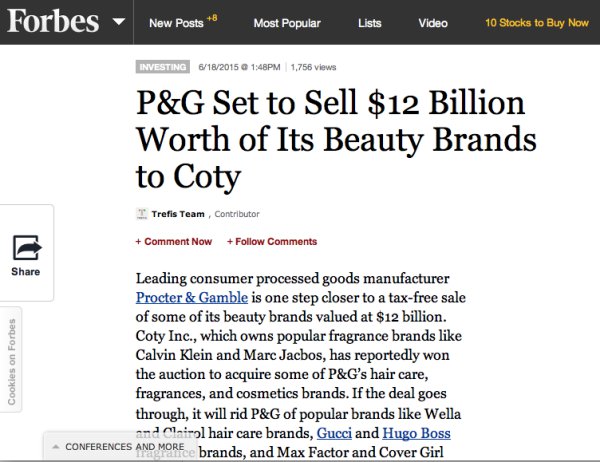
(Above and below) How the mainstream media predicted news of the blockbuster deal |

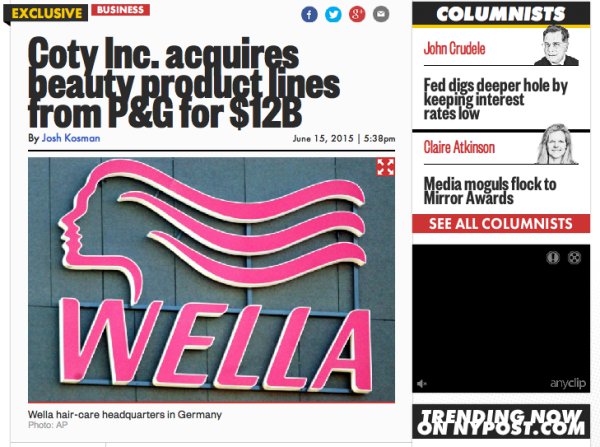
Chairman and Interim CEO of Coty Bart Becht commented: “With the beauty talent from both sides and the fantastic portfolio of world-class brands, we have the opportunity to create a highly focused, pure-play leader and challenger in Beauty which can deliver exciting opportunities and benefits for employees, licensors, customers and suppliers. There is no question that with the broader offering of leading brands, strong brand support, the development of a better pipeline of innovative products and the much broader geographical reach and scale, Coty will strengthen its competitive position and ability to capitalise on revenue and profit growth opportunities over time.
“Additionally, our combined operational and financial platform will allow us to drive meaningful EPS accretion and generate substantial incremental free cash flow over the long term, giving us a strong balance sheet with a conservative leverage profile. All of this has the potential to lead to accelerated value creation for Coty shareholders.”
Impact of Transaction
Based on fiscal year 2014 results, Coty and the P&G Beauty Business would have more than US$10 billion in combined pro forma revenues, doubling the size of Coty. The P&G Beauty Business achieved revenues of US$5.9 billion in the fiscal year ended June 2014, with a carve-out EBITDA of US$1.2 billion, which excludes approximately US$400 million of allocated overhead costs that will not be transferred with the business.
 |
Coty Chairman and Interim CEO Bart Becht: “With the beauty talent from both sides and the fantastic portfolio of world-class brands, we have the opportunity to create a highly focused, pure-play leader and challenger in Beauty.” |
Coty expects to realise approximately US$550 million in total cost savings on an annualised basis over the next three years, including the US$400 million in non-transferred costs and an incremental US$150 million in additional cost synergies, equating to 10% of the acquired revenues. These savings, together with working capital improvement and growth prospects anticipated from the creation of a focused beauty player, is expected to drive material financial improvements.
Coty anticipates incurring one-time costs of approximately US$500 million related to the transaction, plus an additional US$400 million of capital expenditures, over the next three years. Excluding the impact of transaction amortisation, the combined pro forma increase to Coty’s FY15 earnings per share base is approximately US$0.33 to US$0.39, including the assumed three year implementation of full run-rate synergies. At the close of the transaction, Coty expects to increase its annual dividend to US$0.50 per share.
Management, Governance and Ownership
Bart Becht, Coty Chairman and Interim Chief Executive Officer, will oversee a management team, including Coty Chief Financial Officer Patrice de Talhouët, together with a broader leadership organisation consisting of executives from both businesses. The Board of Directors will not change as a result of the transaction.
JAB Cosmetics B.V., the owner of all of the outstanding shares of Coty’s Class B common stock representing approximately 97% of Coty’s outstanding voting power, has granted the shareholder consent required in connection with the transaction. In order to facilitate the transaction, JAB has also agreed to convert all such shares into Class A common stock, subject to completion of the transaction. Following such conversion, Coty’s common stock will consist of a single class. JAB will remain the largest individual shareholder, owning approximately 33% of the fully diluted shares outstanding at the close of the transaction.
Transaction Details
The transaction will be effected through a Reverse Morris Trust structure, which involves the separation of the P&G Beauty Business from P&G, followed by a merger of the P&G Beauty Business with a subsidiary of Coty. While the transaction agreement permits P&G to select the form of the separation, and P&G has not yet made a determination as to whether the separation will be a “spin-off” or a “split-off,” assuming P&G’s current preference for effecting the separation through a “split-off” transaction, P&G shareholders can elect to participate in an exchange offer to exchange their P&G shares for shares of a newly formed company comprising the P&G Beauty Business (“Newco”).
Under the terms of the transaction agreement, immediately after the completion of this “split-off,” Newco will merge with a subsidiary of Coty and P&G shareholders will receive shares of Coty in exchange for their shares of Newco. This Reverse Morris Trust transaction has been approved by the boards of both companies.
Coty’s transaction proposal valued the P&G Beauty Business at US$12.5 billion, based on the number of Coty basic shares outstanding (i.e. excluding the impact of Coty’s outstanding equity awards) and an average Coty trading price at the time of the proposal. The aggregate consideration in the transaction will consist of shares in the combined company issued to participating P&G shareholders, as well as the assumption of debt from the P&G Beauty Business.
The share issuance is structured to result in P&G shareholders receiving 52% of all outstanding shares in the combined company on a fully diluted basis. Coty’s proposal valued this component at approximately US$9.6 billion at the time the proposal was submitted. The remaining consideration of US$2.9 billion in assumed debt from the P&G Beauty Business is subject to a US$1 billion adjustment within a collar based on the trading price of Coty’s stock (range of US$22.06 to US$27.06 per share) prior to the close of the transaction as well as other contractual valuation adjustments.
The assumed debt is expected to be between approximately US$1.9 billion and US$3.9 billion. The actual transaction value will be known at closing based on Coty’s then current share price and fully diluted share count as well as the final level of assumed debt.
The transaction is structured to be tax-efficient to P&G and tax-free to Coty and the shareholders of both companies. It is expected to close in the second half of calendar year 2016, subject to regulatory clearances, works council consultations, and other customary conditions. Transfer of certain fragrance brand licenses from P&G to Coty are subject to licensor consent.
Financing
At the close of the transaction, Coty will assume US$2.9 billion of debt of the P&G Beauty Business. Additionally, as part of the transaction, Coty will refinance its existing debt. On a combined basis, the business at close is expected to have moderate pro forma debt leverage of approximately 3.0x net debt/Adjusted EBITDA, providing ample cash flow for the enhanced dividend while preserving strategic flexibility.


